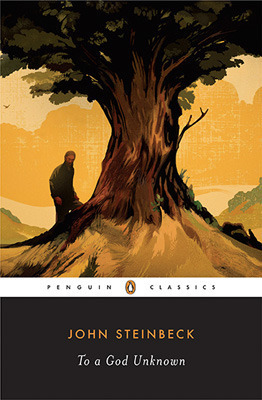It was difficult to hear them over the splash and the battering of the rain, but at last he made them out—the throb of the bass strings of the guitars, pounding and pounding.
He went back into the church and took a heavy crucifix from a cupboard and retired with it to his house. Once in his sitting-room he coated the crucifix with phosphorus so that it might be better seen in the dark, and then he sat down and listened for the expected sounds. It was difficult to hear them over the splash and the battering of the rain, but at last he made them out—the throb of the bass strings of the guitars, pounding and pounding. Still Father Angelo sat and listened, and a strange reluctance to interfere came over him. A low chanting of many voices joined the rhythm of the strings, rising and falling. The priest could see in his mind how the people were dancing, beating the soft earth to slush with their bare feet. He knew how they would be wearing the skins of animals, although they didn’t know why they wore them. The pounding rhythm grew louder and more insistent, and the chanting voices shrill and hysterical. “They’ll be taking off their clothes,” the priest whispered, “and they’ll roll in the mud. They’ll be rutting like pigs in the mud.”
He put on a heavy cloak and took up his crucifix and opened the door. The rain was roaring on the ground, and in the distance, the river crashed on its stones. The guitars throbbed feverishly and the chant had become a bestial snarling. Father Angelo thought he could hear the bodies splashing in the mud.
Slowly he closed the door again, and took off his cloak and laid down his phosphorescent cross. “I couldn’t see them in the dark,” he said. “They’d all get away in the dark.” And then he confessed to himself: “They wanted the rain so, poor children. I’ll preach against them on Sunday. I’ll give everybody a little penance.”


